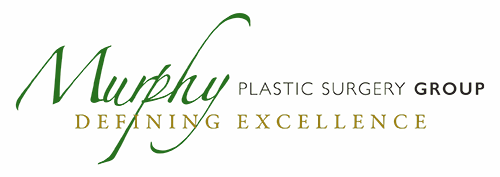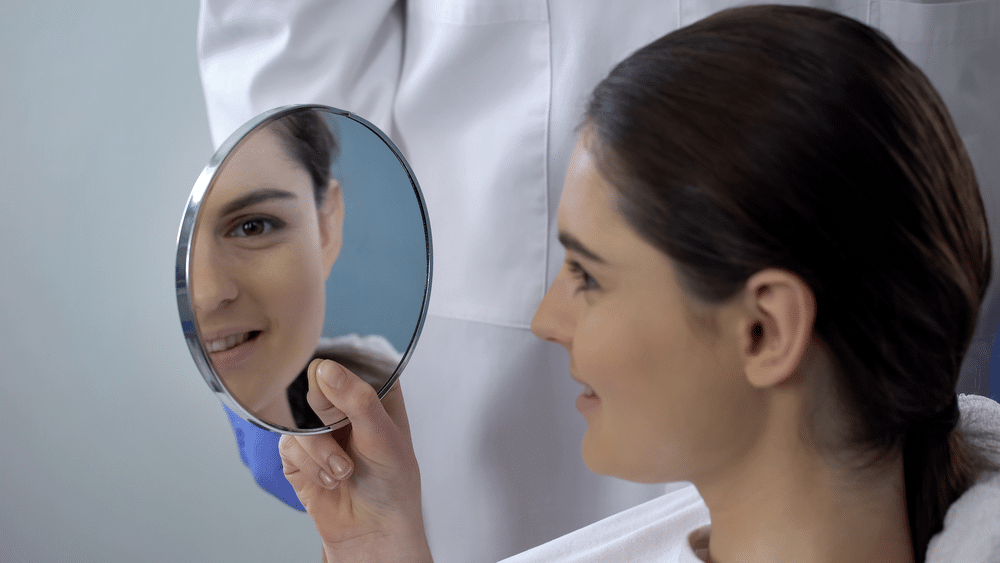After you have a rhinoplasty performed, you will understandably be anxious to see your final results as quickly as possible. At the same time, it’s very important that you allow an appropriate amount of time for recovery. Here at Murphy Plastic Surgery in Englewood, CO, we can tell you more about the procedure itself and about what patients in the Denver, CO area can expect during the recovery period.
How Long Is Recovery After Rhinoplasty?
For most patients, the recovery period lasts approximately six weeks. When you come in for your procedure, we will discuss with you exactly what you can expect and what kind of activities you should avoid for a few days or weeks. Here’s a general breakdown of what to expect:
First Day
For the first day, it’s common to feel drowsy and do a lot of sleeping. Whether you have general anesthesia or just local anesthesia, you are likely to feel a bit more tired than usual. This is a great time to simply listen to your body and let it rest. Most of us don’t get enough rest in our daily lives, so use this as your “excuse” to catch up on sleep.
Two Days
Two days in, you may still be feeling tired, and if you were given general anesthesia and prescription analgesics, you will not have been able to drive since having the procedure done. At this point, you may be thinking about going out, and this is a good time to start walking. Walking gets the blood flowing, and it’s healthy for you in every way. However, rest is still important here. Make your walks leisurely stroll rather than intense power walks.
Five Days
About five days after your rhinoplasty, you’ll be able to return to most of your daily schedule. You can go to school at this point or return to an office job, however, if you have a job that requires physical exertion, you’ll need to wait a bit longer. You should be feeling very much like yourself five days in, but your nose is not finished healing yet and still needs to be treated carefully.
Three to Four Weeks
At 3 to 4 weeks, depending on your unique physiology and healing rate, you should already have been at work for a while and can now go back to more intense activities that you’ve been avoiding. You can return to your jogging, spinning, or another moderate-intensity cardiovascular exercise. However, bear in mind that the bones and cartilage in your nose are not fully repaired yet and it’s best to avoid the extremely intense exercise of any type or any sort of resistance exercises.
Six Weeks
At this point, for most people, the nose should be fully healed and everything settled. At this point, you can go back to whatever exercise and activity you like and can also wear glasses and blow your nose freely.
Enjoy a Faster Recovery
While your recovery is ultimately determined by your unique physiology and the rate at which your body naturally heals, there are some things you can do to help your body repair and recover as quickly as possible.
Follow Instructions
The first step toward a fast and full recovery is to listen carefully to all instructions from your doctor and follow them carefully. There will come a time when you feel “fine,” and at that point, it is common for patients to be tempted to assume that the nose is fully healed.
This is not the case: you can be feeling great generally even as the bones and cartilage in your nose continue to knit. We will give you instructions about what medication to take, how to clean your nose, what to do and what to avoid, and when to come in for a check-up. Be sure to follow these instructions carefully.
Keep Your Head Up
For the first few nights, it’s very important that you do not sleep on your side or on your stomach. If you do this, it may significantly prolong your recovery. You placed too much pressure on the cartilage of your nose, and this can even affect your final results, so be sure to sleep on your back with at least two pillows to elevate your head.
We often recommend that patients sleep in a reclining chair for the first couple of nights, especially if they tend to sleep on their sides and roll around a lot during the night.
Eat Well
After you have a surgical procedure, when you’re feeling a bit tired, it’s very common to grab easy and convenient junk food. But what you put into your body will either help your body recover quickly or will work against that recovery. It’s very important that you eat lots of healthy protein, good fats such as are found in olive oil, coconut oil, fish, and the fat of animals that have been grass-fed or free-ranged, and fresh, non-starchy vegetables.
When you want some carbohydrates, eat something complex and packed with micronutrients, such as a sweet potato. Avoid sugar, sodas, alcohol, refined grains, and processed food. If you make a food schedule ahead of time and freeze some meals and lay in some healthy food, you’ll have everything you need for your recovery period.
Rest
Perhaps nothing is more important to your recovery than rest. When you rest, you take the pressure off your body to do other things and allow it to concentrate on healing. If you can sleep between seven and nine hours a night, this will give your body plenty of time to focus on rebuilding tissues and cells. Go to bed when you feel tired and avoid setting alarms: allow yourself to sleep as long as you need.
Keep Cool
You will feel most comfortable and recover most quickly if you stay cool during your recovery period. This is especially important during the first 3 to 4 weeks. Take lukewarm showers and baths rather than steaming hot ones, avoid steam rooms and saunas, don’t engage in strenuous cardio, and don’t eat a lot of steaming food, such as hot teas and bowls of soup. Your food should be warm, not piping hot.
Avoid Glasses
Glasses and sunglasses don’t weigh much, but even their minimal weight is too much for your nose during this period. You don’t want to put any pressure on the healing tissues, cartilage, and bone. If you normally wear prescription glasses, be sure to wear contact lenses during this period.
If you rely on sunglasses normally and want to go outside, we suggest investing in a good ball cap you can pull down to shade and protect your eyes from the sun. We’ll let you know when it’s safe to wear your glasses again regularly.
Stay Out of the Sun
Speaking of the sun, it is best to limit your exposure to it during this time. If you go outside during the day, be sure you’re shading your face with a good hat and wearing broad-spectrum sunscreen. Exposure to UV rays from the sun can interfere with the production of new collagen and damage the collagen that already exists, slowing down your recovery. Also, being out in the sun tends to elevate blood pressure, which can make your nose feels swollen and tight.
Don’t Blow Your Nose
This is a tough one to follow, but it is very important. During your rhinoplasty recovery, you may feel congestion at times, but you absolutely cannot blow your nose. Just remember: this congestion is not caused by mucus in your sinus cavity and will not actually be relieved by blowing your nose. This congestion is caused by swollen tissues in the nasal cavity.
You can relieve the feeling a bit by using a saline spray or with cold compresses. We can give you some other tips when you come to see us.
Learn More About Rhinoplasty
Even though this rhinoplasty procedure takes six weeks to recover from, you will be back to work or school much more quickly than that, in most cases. This is a relatively minor procedure with a short recovery period, but the final effects can be life-changing. Whether you’re seeking rhinoplasty to correct the look of your nose, to make breathing easier, or to deal with an injury, once the recovery is over, you will love the results. Call us today at Murphy Plastic Surgery in Englewood, CO to learn more or get started.

